terrorism
Latest
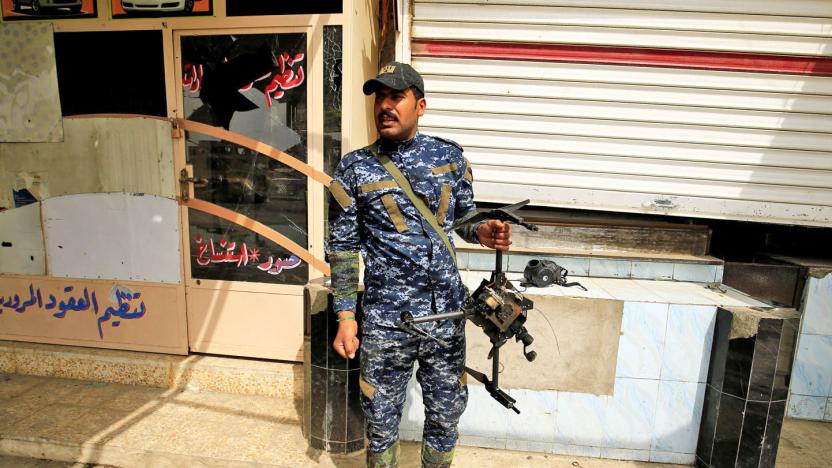
DJI grounded its drones in Iraq and Syria to lock out extremists
The most recognizable name in drones has reportedly stepped in to help the United States in its ongoing war on terror. As The Register reports today, Shenzhen-based DJI -- makers of the ever-popular Phantom and Inspire series quadcopters -- quietly created software-based no-fly zones over large parts of Iraq and Syria where ISIS fighters have been known to strap improvised bombs to commercial drones.
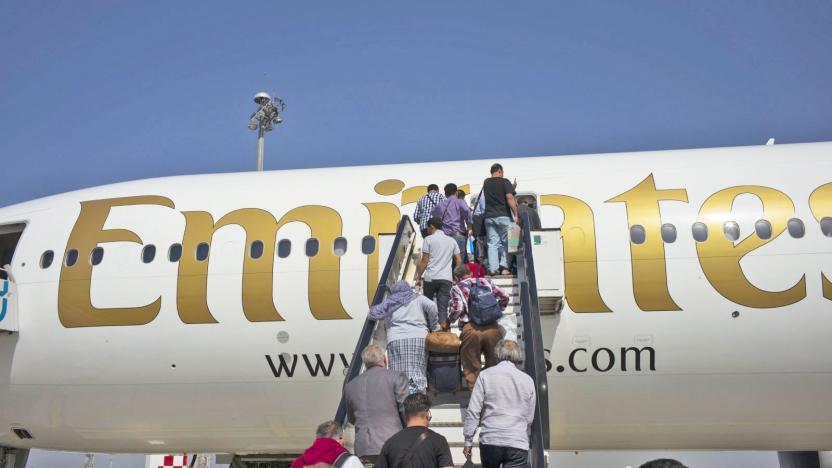
Emirates will hand out Surface tablets on flights from Dubai
In mid-March, the US hastily instituted an indefinite ban on electronic devices larger than a cellphone from being carried on to the flights of nine Middle Eastern airlines. Reportedly, it was to prevent terrorists from sneaking an explosive-laden fake iPad into the cabin, though few details on the specific threat have emerged in recent weeks. To compensate travellers for the hassle of spending hours on a flight without their trusty laptops, Emirates has begun offering complimentary Microsoft Surfaces for the durations of affected flights.

iPad bomb threat led to recent device ban on flights
When the US and UK banned people from carrying large devices aboard flights originating in the Middle East and northern Africa, they only made vague claims about this being in response to threat reports. But just what were those threats, exactly? We might have an idea. A Guardian security source understands that the bans were prompted in part by a plot to tuck explosives into a fake iPad. This wasn't the only motivation -- there was a "combination of factors," according to the newspaper -- but it played an important role. It's not clear where and when this faux tablet bomb would have been used.
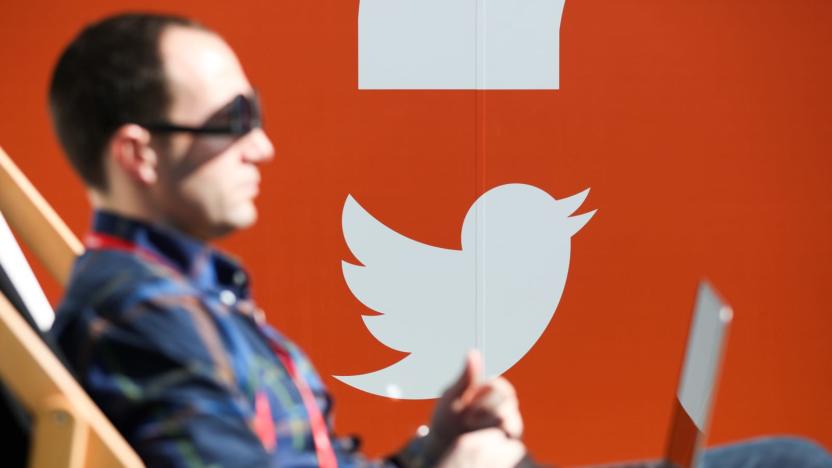
Twitter triples suspensions of pro-terrorist accounts in one year
If it wasn't already clear that Twitter is serious about stamping out pro-terrorist accounts, it is now. The social network has posted its transparency report for the second half of 2016, which reveals that it suspended over 376,000 accounts for backing terrorism. That's triple the 125,000 it took down one year earlier, and a still-hefty 60 percent more than the 235,000 accounts it pulled in the first half of 2016. While some officials still don't think Twitter is up to snuff (it's not proactively reporting extremist material to police, the UK says), there's no doubt that it's considerably more aggressive.

US bans most electronics on Middle Eastern airlines (updated)
The US just made traveling to certain parts of the world considerably more complicated, at least for technology fans. Middle Eastern and African airlines (including Royal Jordanian and Saudia) say the US has asked them to institute a 96-hour ban on carrying most electronics on flights to or from the US, starting on March 21st. You can sit down with your phone or any necessary medical devices, but cameras, laptops and other larger gadgets will have to go into your checked baggage. The exact conditions of the ban aren't yet clear, but an American official said that "12+" airlines are covered, while Saudia exec Abdulrahman al Fahad mentioned 13 countries being affected.
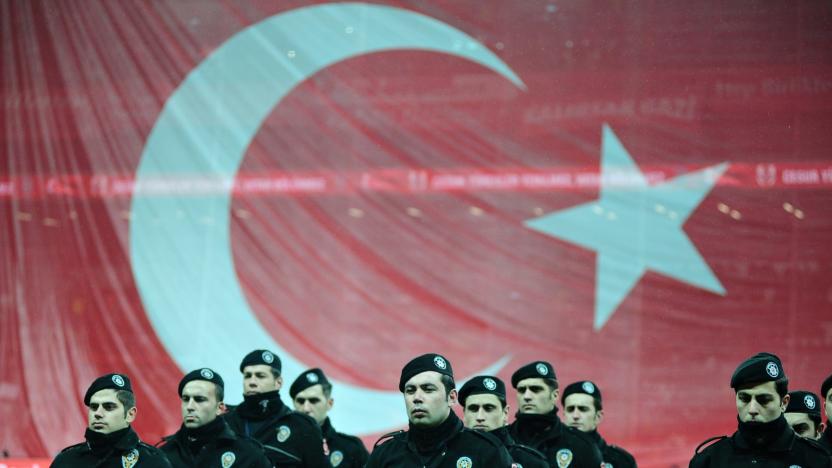
Turkey says it's investigating 10,000 social network users
Turkey has been cracking down on internet activity at a frenetic pace ever since an attempted military coup in the summer, and it's now clear that there are a lot of people caught in the dragnet. The country's interior ministry has revealed that officials are investigating about 10,000 social network users suspected of backing terrorism. About 3,710 people have been questioned in the past 6 months, authorities say, and 1,656 were arrested. The rest were let go, but 1,203 of them are still under watch.
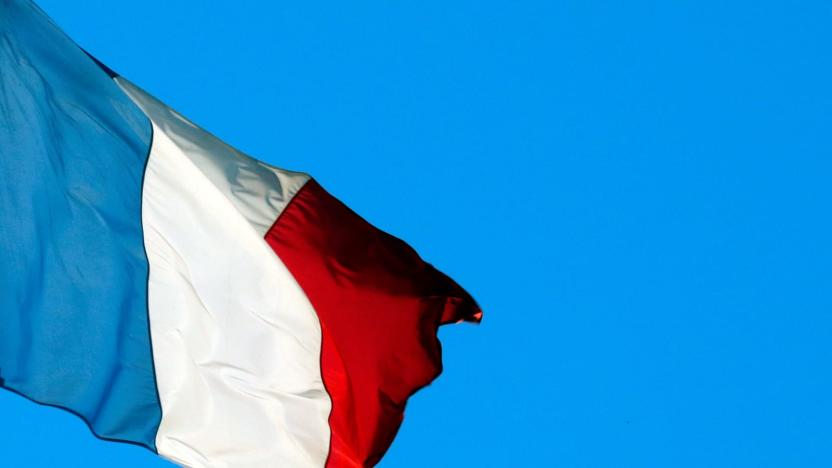
France jailed a man for visiting pro-ISIS websites
France's mercurial relationship with technology and the internet is in the news once again. This time it's because a man was going to pro-ISIS websites with regularity. Facing a two year sentence, the suspect said that he was simply curious and wanted to "tell the difference between real Islam and the false Islam," France Bleu reports.

The FBI wants to crack another iPhone after Minnesota stabbings
The FBI and Apple might be headed for another fight over the case of a locked phone. Last night, FBI special agent Rich Thorton confirmed that the agency is trying to crack an iPhone belonging to Dahir Adan, a 20-year-old Somali immigrant who stabbed 10 people in a Minnesota mall last month. Per Wired, Thorton said the bureau was already sifting through some "780 gigabytes of data from multiple computers and other electronic devices," but unlocking Adan's phone could shed valuable light on why he did what he did and help figure out who (if anyone) helped him on his path.

Facebook briefly suspended accounts of Palestinian journalists
Last week, seven Palestinian editors from two different publications reported that they had been locked out of their personal Facebook accounts without notice or reason. The social giant told The Electronic Intifada that it was accidental and restored access to six of them by Saturday, though one remains suspended as of press time. But employees from both Shehab News Agency and Quds News Network doubt that their colleagues were banned in error. Rather, they have pointed to Facebook's recent agreement with Israel earlier this month to jointly crack down on "incitement" by Palestinians on social media.
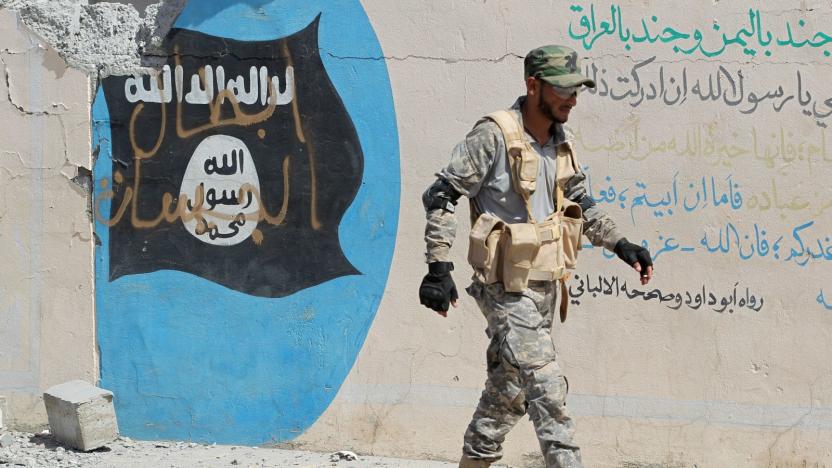
Hacker faces 20 years in prison for helping ISIS
The US just broke new ground in its bid to fight pro-terrorist hackers. A judge has sentenced Kosovo citizen Ardit Ferizi to 20 years in prison for hacking a US company in order to collect information about 1,300 government and military personnel and help ISIS create a hit list. It's the country's first conviction for terrorism-related hacking, according to Assistant Attorney General John Carlin. Ferizi pleaded guilty on June 15th, roughly 8 months after Malaysian police arrested him on the US' behalf.
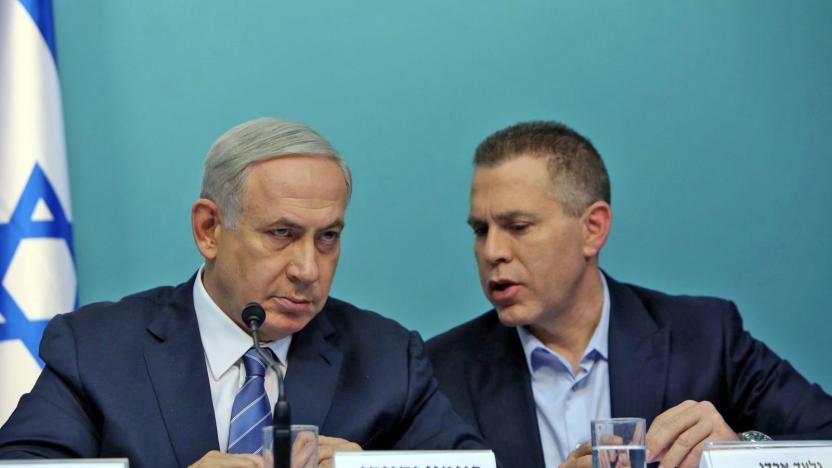
Facebook works with Israel to curb posts inciting violence
Facebook is no stranger to fighting terrorism online, but it's about to take those efforts one step further. In the wake of lawsuits from terror victims' families, the social network is partnering with Israel on ways to track and pull content that incites violence. The country claims that a year-long surge in Palestinian violence was partly sparked by social posts, and hopes that tighter controls on those posts will help douse those flames. The two aren't saying exactly what they'll do, but Facebook has stressed its belief that it can fight extremism through a "strong partnership" between public and private organizations.

UK: Facebook, Google, Twitter 'consciously failing' on terrorism
The UK parliament has slammed Facebook, Twitter and YouTube for "consciously failing" to remove terrorism recruitment content. According to a report from the Home Affairs Committee, the social networks are "the vehicle of choice in spreading propaganda and the recruiting platforms for terrorism." In statements to the WSJ, the companies denied that they are lax with extremist postings. "We deal swiftly and robustly with reports of terrorism-related content," a Facebook spokesperson said.
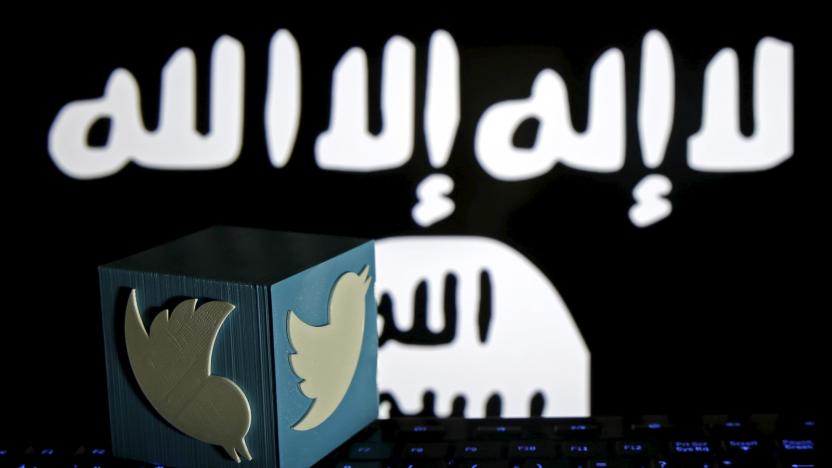
Twitter suspends 235,000 accounts for promoting terrorism
For years, Twitter was the free speech bastion it aspired to be, maintaining a hands-off approach enabling a liberated forum yet allowing hate speech to flow across its channels. Amid criticism and pressure to stop extremist groups from using its services for coordination and recruitment, the social media company began cracking down in mid-2015. Today they announced that over the past six months, the company has suspended 235,000 accounts suspected of promoting terrorism, bringing the total to 360,000 since last year.
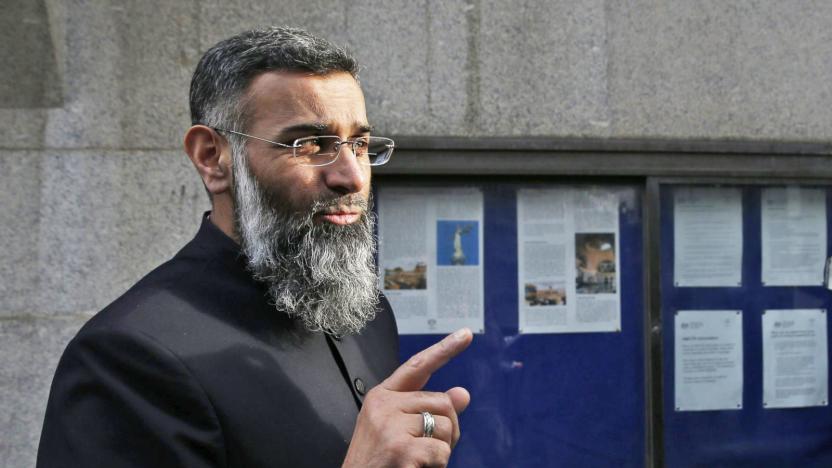
Twitter and YouTube wouldn't delete an extremist cleric's posts (update: gone)
Internet giants have been increasingly willing to take down extremist content, but their previous reluctance is coming back to haunt them. The UK recently convicted radical cleric Anjem Choudary (and co-defendant Mohammed Rahman) of rallying support for ISIS, and court documents have revealed that neither Twitter nor YouTube agreed to take down key content. Twitter hasn't deleted his account, for example, despite British law enforcement's claims that it violates Twitter policies on promoting terrorism -- even after he was arrested in September 2014. It pulled Rahman's, but not in sync with an official request.

World's largest game expo tightens security following violence
Germany has been hit by a string of mass violence as of late, and the effect of those tragedies is about to spill over to the gaming community. The organizers behind Gamescom, the world's largest gaming trade show, have introduced tighter security measures that will definitely be noticeable if you make it out to Cologne for the event. They're banning not only weapon replicas, but "weapon-like items" -- like it or not, your Deadpool or Harley Quinn cosplay will have to go without armaments. Even exhibitors will have to label any vaguely threatening props to avoid raising alarm bells.
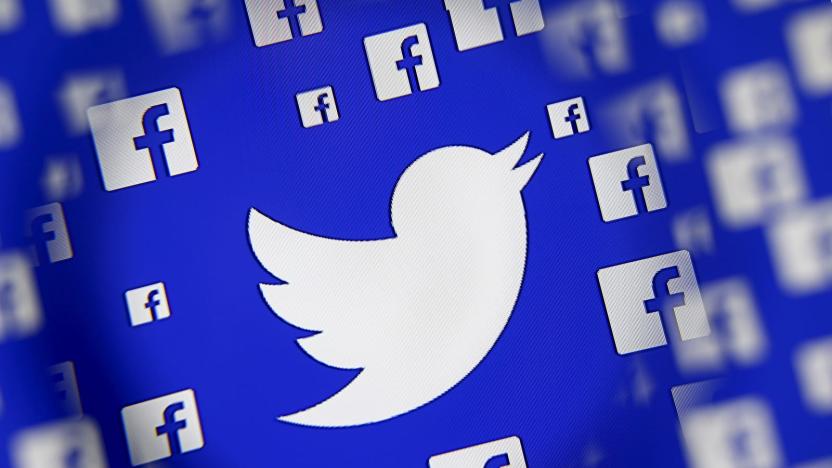
Facebook and Twitter helped catch suspected militants in Brazil
Big social networks have been doing more to quash extremist content and views lately, but rarely are they praised for having a real impact on investigation. On a television interview last night, a judge confirmed that Facebook and Twitter cooperated with authorities to help track down 12 suspected militants that were planning to attack the Rio Olympics.

Twitter was quick to pull extremist tweets following Nice attack
Twitter's response to online extremism has changed a lot in the past few years. Observers at observer groups like the Counter Extremism Project report that the social network was exceptionally speedy in removing pro-extremist accounts and tweets in the hours following the truck attack in Nice, France on July 14th. It moved with "swiftness we have not seen before," CEP says. Twitter hasn't commented on the specific actions, but it's apparent that the company is serious about its ban on terrorism.

ISIS' Twitter traffic reportedly dropped 45 percent in 2 years
If you ask the US government, the efforts to stifle ISIS' online propaganda are paying off. The White House reports that the extremist group's Twitter traffic has dropped 45 percent in the past 2 years, owing to both attempts to keep accounts offline and a surge of countering messages. To some extent, it was just a matter of getting up to speed. Officials admit that they made mistakes early on in fighting ISIS' online messaging (such as producing a lot of opposing statements in Engilsh), but they say they've both made more relevant content and done a better job of coordinating internet campaigns with its military strategy.

Iraqis use off-the-shelf drones to battle ISIS
Let's say you're leading an Iraqi militia. You want to reconnoiter ISIS fighters' positions, but you don't have the budget for military-grade UAVs or helicopters. What to do? For the Iraqis themselves, the answer is simple: buy everyday drones. As Wired notes, both Shia militias and Iraqi officials are using consumer drones bought in hobby and toy stores (like DJI's Phantom line) to observe ISIS positions and help call artillery strikes. They seldom last for more than 40 minutes in the air, but that's enough to provide a heads-up and improve accuracy.

New algorithm aims to predict ISIS attacks
A physicist from the University of Miami has created an algorithm that can scan the Islamic State's social media posts and may eventually be used to predict the group's next terrorist attack. In the journal Science today, Dr. Neil Johnson and his team described their method of searching through roughly a year's worth of posts on the Russia-based social network Vkontakte, looking for pro-ISIS statements in multiple languages. The resulting data allowed Johnson and team to build out "a statistical model aimed at identifying behavioral patterns among online supporters of ISIS."





